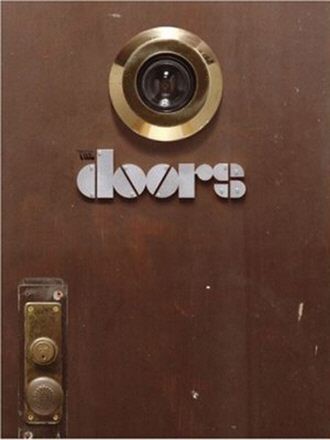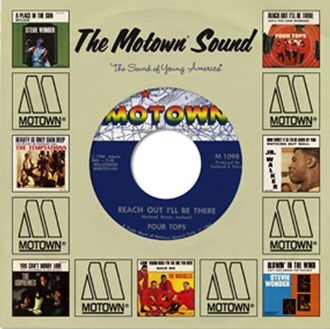When VH1 Classic recently paid tribute to the Pretenders with a taping of Decades Rock Live, most of the special guests made sense. There was Iggy Pop, one of Chrissie Hynde’s avowed musical heroes; Shirley Manson, an obvious example of Hynde’s influence on the generation of female singers who followed her; and Kings of Leon, a young band that inspired Hynde to continue kicking out the jams. But there was one act that didn’t belong there: Incubus.
The feeling of sticking out probably wasn’t a new sensation for the Southern California group, because they don’t comfortably fit in any musical setting. They are mega-platinum misfits; a band without a genre.
| Light Grenades Incubus (Epic/Immortal) |
No two pieces mesh with these guys. Their name suggests a death-metal riff machine, but they’ve shown a capacity (and fondness) for tightly crafted, melodic pop songs. They made their big-league bow in 1997 as a derivative, rap-metal child of Limp Bizkit, complete with wicca-wicca DJ scratches and bombastic guitar assaults, but lead singer Brandon Boyd is a stylishly groomed Mod pinup. Rock hasn’t seen such cognitive dissonance since Pat Boone made his metal album.
Light Grenades, the band’s sixth album, finds them continuing to move away from the rap-metal juvenilia that initially earned them an audience, toward a more mature, modern-rock fusion. But they’re still as schizophrenic as ever. “A Kiss To Send Us Off” has a punk fury that recalls the louder moments of Nirvana’s In Utero, while “Love Hurts” (not the Everly Brothers/Roy Orbison classic) is a wimpy ballad with an indefensibly trite chorus: “Love hurts/but sometimes it’s a good hurt/and it feels like I’m alive.” The title track is Megadeth-brand speed-metal, while the pretentious “Earth To Bella” is a two-part, space-folk epic.
The band’s skill is undeniable, but too often the results feel like manufactured style-hopping. Every now and then, they’ll churn out a streamlined pop-rock gem like “Diamonds and Coal,” and make you wonder if they’re capable of something beyond well-produced pastiche, but not often enough to hold your attention. Incubus’s fans view the band’s lack of a defined sound as an example of admirable eclecticism, but more often it feels like fear of musical commitment.
— Gilbert Garcia
MOONLIGHT DRIVE
Graying hippies and boomers still reeling over Jim Morrison’s death, and kids who’re just mourning lost Lizard King mythology now , can salve their aches because the Doors are, um, back ... in a way.
This writer is no fan of rewritten musical history, particularly when it involves the remixing of actual multi-track master tapes — a record and its mix capture a moment in time, period. But this boxed set is a stunner. And it’s the high-resolution remixes that elevate it above yet another crude Doors cash-in.
First, the box’s cover is a door that sports a peephole through which images of the band can be rotated by a finger-controlled wheel. Fun, eh? Inside, the albums are housed in two-disc digipaks, each containing a booklet, a CD of the original mixes — but the exact same as the 1999 reissues — and a second disc of stereo and surround album remixes (in DVD-Audio advanced resolution, DTS and Dolby Digital). Included are song outtakes, pics, lyrics, and video footage from TV shows and live performances.
| Perception The Doors (Rhino/WEA) |
The new remixes (by band engineer-producer Bruce Botnick) lift smoggy veils from the original tracks, revealing a clarity (and bits cut from the original mixes) that has never been heard before. Combine that with inherent hi-res (24/96) residuals and the band sounds more rock ’n’ roll — even ferocious at times — with all the warmth of analog. You can hear what the Doors were really all about.
And Morrison sounds more baleful and more sensitive and more full-of-himself than ever. An example: the telling “she gets high” refrain that’s been restored to “Break on Through (To The Other Side)” changes the whole feel of the song. When he croons, his low register just resonates. And wherever you stand on Morrison’s purple Verlaine and Rimbaud nods, he’s never sounded so passionate, and never has it been so evident just what a great, nuanced rock ’n’ roll singer he was, even as his voice degenerated to a booze-baked, pitched rasp by L.A. Woman.
The Oedipal lament of “The End” is scary in hi-res. The drunken pop star is walking on down your hall, walking on down to your mother’s bedroom. You still don’t know if it’s genius or affected garbage, but he’s in your hallway. Morrison’s every hoarsey tone is so in-the-moment, so you-can-reach-out-touch-it, that you can feel his voice box stinging from booze and overuse throughout the new mixes.
In DVD-audio, the musical harmonics arrive at their logical destination. Ray Manzarek’s organ riffs swell and recede, low notes resound deep in the chest. John Densmore is all elbows, groove, and clang; cymbals and crashes hang and sustain as they should. Robby Krieger’s guitars are louder, defined. It’s as if you can get up and touch each band member, walk around them as they play; and that’s just in the stereo mix. In surround, the band is sitting all around you.
You get many little bits and pieces left off the original mixes too, including longer intros on “Touch Me” and “Soft Parade.” The running-speed problems on The Doors are now “corrected.” Some great outtakes include versions of “Indian Summer” (with the original 1966 vocal), the jazz version of “Queen of the Highway” from Morrison Hotel and two takes of “Moonlight Drive” from The Doors. Some Morrison studio banter shows a guy who wasn’t so mired in selfness; it’s the kind of stuff that goes lengths to shatter the Morrison mythology.
This set is for those who don’t dig the Doors as well as Doors completists and audiophiles. The only downer is the classic mixes aren’t included on the hi-res discs. After this you’ll never want to hear a compressed iPod file again.
— Brian Smith
HITTSVILLE HEYDAY
Any year of the 1960s holds its fair share of prestige and regard in Motown history. And the last four volumes of Hip-O-Select’s series (chronicling 1961 through 1965) have showcased that with a barrage of consistency that’s overwhelming. And yet, whether your interest is civic, musical, or historical, 1966 pops out as primetime in Hitsville.
What makes 1966 different for Motown are the clear and present non-hits — sometimes not even songs — included in this set. Contest records, for example, became all the rage. Christine Schumacher, a blind high-school girl, won a radio contest and got herself onto a record with the Supremes. Francis Nero won a talent contest at the Fox Theatre and got her very own single. Both were limited in copies pressed and promotion (and some may argue talent), but what they evidence is a record label practically having to throw away money because it was doing so well. Those singles and more are here — a lot more, to the tune of five CDs, 125 tracks, and the A- and B-side of everything the label released that year.
| The Complete Motown Singles Volume 6: 1966 Various Artists (Hip-O Select) |
Because it could, Motown pressed a disc of Loraine Alterman (then Teen Beat editor of the Free Press and the future wife of Peter Boyle) interviewing Marvin Gaye about mod clothes, then just gave the thing away with copies of the newspaper. There was also a promo-only single by Brenda Holloway urging local youth to “Play it Cool, Stay in School” as back-to-school ’66 rolled around. Fact is, Motown was flush with hits at this point and was admirably taking on more social responsibility in the community.
And the hits: The Four Tops with “Reach Out I’ll Be There” and “Standing in the Shadows of Love.” The Temptations with “Ain’t Too Proud to Beg” and “Get Ready.” The Supremes with “You Keep Me Hangin’ On” and “You Can’t Hurry Love.” Many consider this the apex of Motown’s creative dominance, and few will have valid arguments to the contrary.
But the obscura freaks get their jollies, too: Included on Volume 6 are two tracks by the Mynah Birds. Long surrounded by lore, this Toronto-based band included Rick James and Neil Young and never released anything during its short lifespan. While “Superfreak” or “Rockin’ in the Free World” it is not, “It’s My Time” offers a passable take on mid-’60s garage pop, only slightly less stellar than something off the Nuggets compilation. James does an impeccable Mick Jagger vocal imitation, and Young chimes away with a notable 12-string solo. This inclusion alone makes the whole damn set
worthwhile.
— Ben Blackwell

















